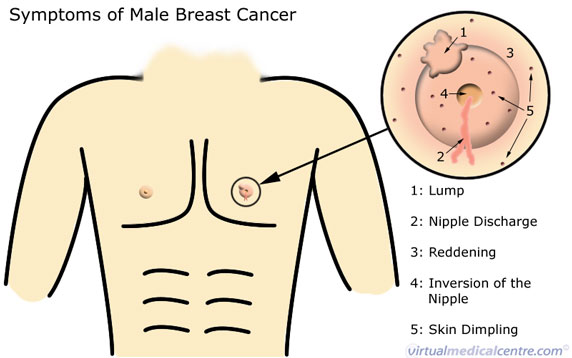
Omega-3 Fish Oil Capsules
New research has shown for the first time that omega-3 in fish oil could "substantially and significantly" reduce the signs and symptoms of osteoarthritis.
Osteoarthritis affects is caused when the cartilage at the ends of bones wears away and the underlying bone thickens, leading to stiff, painful joints. Currently, there is no effective treatment to slow down disease progression, and treatment is limited to pain relief and ultimately joint replacement.
According to the University of Bristol study, funded by Arthritis Research UK and published in the journal Osteoarthritis and Cartilage, omega-3-rich diets fed to guinea pigs, which naturally develop osteoarthritis, reduced disease by 50 per cent compared to a standard diet.
The research is a major step forward in showing that omega-3 fatty acids, either sourced from fish oil or flax oil, may help to slow down the progression of osteoarthritis, or even prevent it occurring, confirming anecdotal reports and "old wives' tales" about the benefits of fish oil for joint health.
Lead researcher Dr John Tarlton, from the Matrix Biology Research group at the University of Bristol's School of Veterinary Sciences, said classic early signs of the condition, such as the degradation of collagen in cartilage and the loss of molecules that give it shock-absorbing properties, were both reduced with omega-3.
"Furthermore, there was strong evidence that omega-3 influences the biochemistry of the disease, and therefore not only helps prevent disease, but also slows its progression, potentially controlling established osteoarthritis," he said.
Dr Tarlton added: "The only way of being certain that the effects of omega-3 are as applicable to humans as demonstrated in guinea pigs is to apply omega-3 to humans. However, osteoarthritis in guinea pigs is perhaps the most appropriate model for spontaneous, naturally occurring osteoarthritis, and all of the evidence supports the use of omega-3 in human disease."
Medical research director of Arthritis Research UK, Professor Alan Silman, said: "The possibility that omega-3 fatty acids could prevent osteoarthritis from developing has been a tantalising one. Some limited, previous research in dogs has suggested that we were a long way away from understanding the potential use in humans. However, this current research in guinea pigs is exciting as it brings us closer to understanding how omega-3 might fundamentally interfere with the osteoarthritis process, and that it could potentially be taken as a treatment."
Fish Oil Far More Effective Than Flax Oil
On the back of the results of his study, Dr Tarlton said that following government guidelines on dietary intake of omega-3 fatty acids could be effective in reducing the burden of osteoarthritis. Fish oil is far more effective than the flax oil based supplement, but for vegetarians flax oil remains a viable alternative.
"Most diets in the developed world are lacking in omega-3, with modern diets having up to 30 times too much omega-6 and too little omega-3. Taking omega-3 will help redress this imbalance and may positively contribute to a range of other health problems such as heart disease and colitis."
Further studies are needed to determine the influence of omega-3 fatty acids on established disease in guinea pigs, and to confirm the effects in human osteoarthritis, said Dr Tarlton.
Story Source:
The above story is prepared with editorial adaptations by The Zestzfulness Team from materials provided in the University of Bristol press release issued on October 17, 2011
Journal Reference
Knott L, Avery NC, Hollander AP, Tarlton JF. Regulation of osteoarthritis by omega-3 (n-3) polyunsaturated fatty acids in a naturally occurring model of disease. Osteoarthritis Cartilage. 2011 Sep;19(9):1150-7.
You can read the full report HERE.
####
Omega-3 fatty acids are considered essential fatty acids necessary for human health. The body cannot make its own omega-3 fatty acids, they must be taken in through the diet, or in supplement form. Omega-3 fatty acids are naturally found in fish, such as salmon, tuna, and halibut, other seafood including algae and krill, some plants, and nut oils.
Also known as polyunsaturated fatty acids (PUFAs), omega-3 fatty acids play a crucial role in brain function, as well as normal growth and development.
Research shows that omega-3 fatty acids reduce inflammation and may help lower risk of chronic diseases such as heart disease where clinical evidence is strongest.
Omega-3 fatty acids may also be used for:
High cholesterol
High blood pressure
Heart disease
Diabetes
Rheumatoid arthritis
Systemic lupus erythematosus (SLE)
Osteoporosis
Depression
Bipolar disorder
Schizophrenia
Attention deficit/hyperactivity disorder (ADHD)
Cognitive decline
Skin disorders
Inflammatory bowel disease (IBD)
Asthma
Macular Degeneration
Menstrual pain
Coloncancer
Breast cancer
Prostate cancer
You can get more information from the University of Maryland Medical Center website HERE












